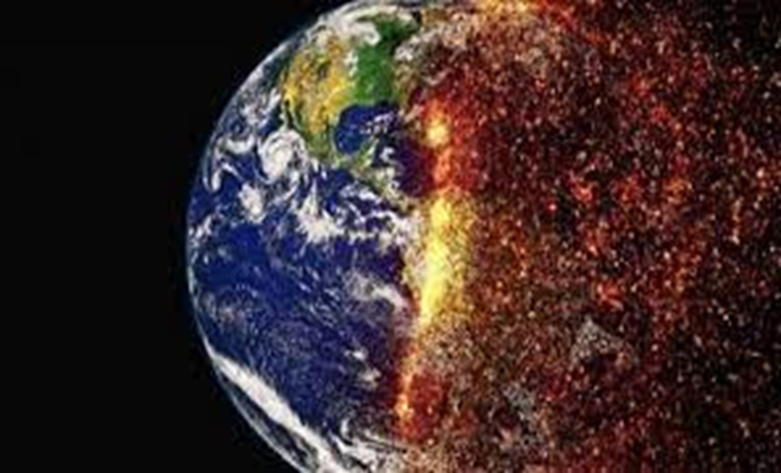The extinction of ancient human ancestors is due to climate change

Even innovations such as tools and clothing did not save our ancient ancestors from the effects of climate change
They were not able to withstand the warming or the low temperatures, and "it may happen again" with us today
Today, only one of the known human species lives on the face of the earth, called "Homo sapiens" (Homo sapiens), and our species is considered the last survivor among six different species, at least, of the first humans.
But what is behind the extinction of our ancient ancestors at a time when "Sapiens" (our species) was otherwise able to maintain its survival, and subsequently spread to various parts of the planet?
According to new research, the causes that led to the demise of other human species may not be dissimilar to the same greater threat, climate change, that today threatens the long-term survival of our species.
In the recent study, the researchers combined virtual computer climate models and fossil records, in a search for evidence explaining the causes of previous extinctions on the planet, and found that the inability of ancient human species to adapt, whether with high or low climate temperatures, played a "role." President" that extinction is their fate.
To shed light on the conclusions of the study, Pasquale Raya of the University of Naples Federico II in Italy said, "Our findings show that the previous species of man could not survive under severe climate change despite Reaching technical innovations at the time, including the use of fire, polished stone tools, the formation of complex social networks, and even the manufacture of sticky spear heads for Neanderthals, appropriate clothing, and a reasonable amount of culture and genetic exchange with Homo sapiens.
“They [our ancient ancestors] tried really hard and went to the warmest places they could when the weather got cold, but in the end, it wasn't enough,” says Dr. Raya.
The researchers used a high-resolution computer program that simulates past climate conditions to provide data on temperature, precipitation, and other information to produce climate models covering the past five million years.

It is noteworthy that this time period witnessed the extinction of early human species, including "skilled man" (Homo habilis), "working man" (Homo ergaster) and "erect man" (Homo erectus). erectus), "Homo heidelbergensis" and "Neanderthals" (Homo neanderthalensis).
The researchers also studied an extensive fossil database of more than 2,750 archaeological records with the aim of hypothetically modeling the evolution of the favorable climatic conditions in which human species would be able to survive, over time.
The goal was to find out what climate conditions were best for these early humans and how they were affected by changes in the climate.
The study provides, according to the researchers, "strong evidence" showing that three human species, namely "Homo erectus", "Heidelberg man" and "Neanderthal", lost a large percentage of the climatic conditions suitable for them before they died out.
They reported that the decline in the favorable climate for our ancient ancestors coincided with sharp and undesirable changes in the global climate.
With regard to "Neanderthals" in particular, it is likely that things have been exacerbated by the competition between him and "Sapiens".
Dr. Raya said in this regard, "We were surprised by the recurring impact of climate change. It was clear to the extinct species, and not others, that the climatic conditions were very severe during the period immediately preceding the extinction, and at that time in particular."
On the other hand, he pointed out that there are doubts about the ancient climate simulation models, in addition to that some identifications of fossil remains remain within the species level only, not to mention the aging of fossil sites and their impact over time, but the main ideas “remain valid under all assumptions.” , he said.
In Dr. Raya's eyes, the findings of the study serve as a warning to humans today as we face unprecedented changes in climate. "It is disturbing to know that our ancestors, whose mental capacity was not inferior to any other organism on Earth, could not withstand climate change," he said in this regard.

And he added, "This is what we have concluded at a time when our species is cutting off the branch on which it sits as a result of standing behind climate change. Personally, I consider this a resounding warning message. Climate change has made humans fragile and miserable in the past, and it is possible that this will be repeated."
Source : websites

